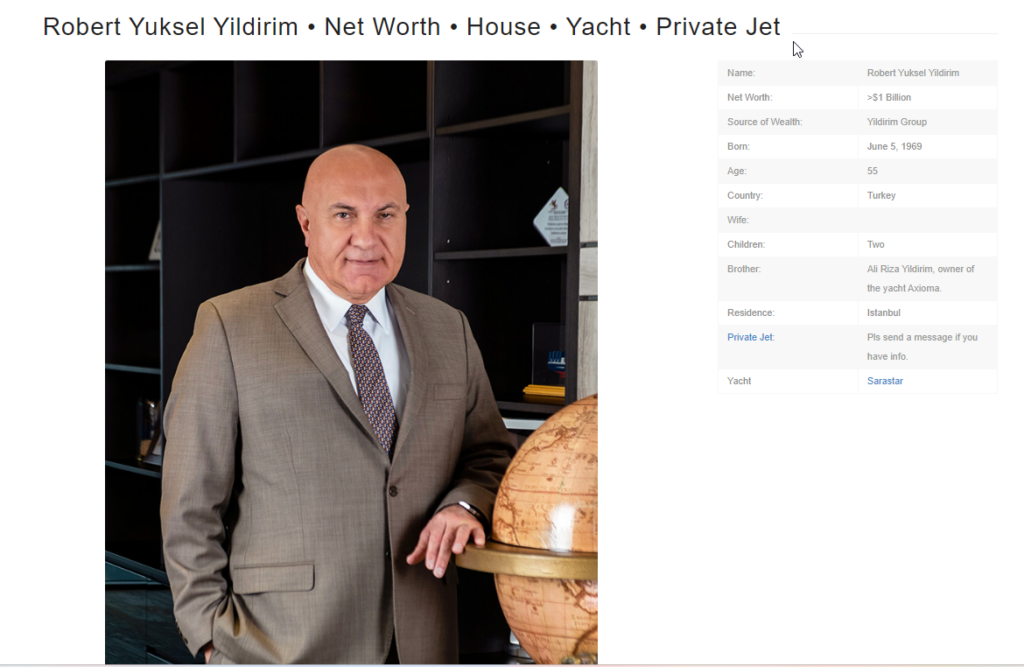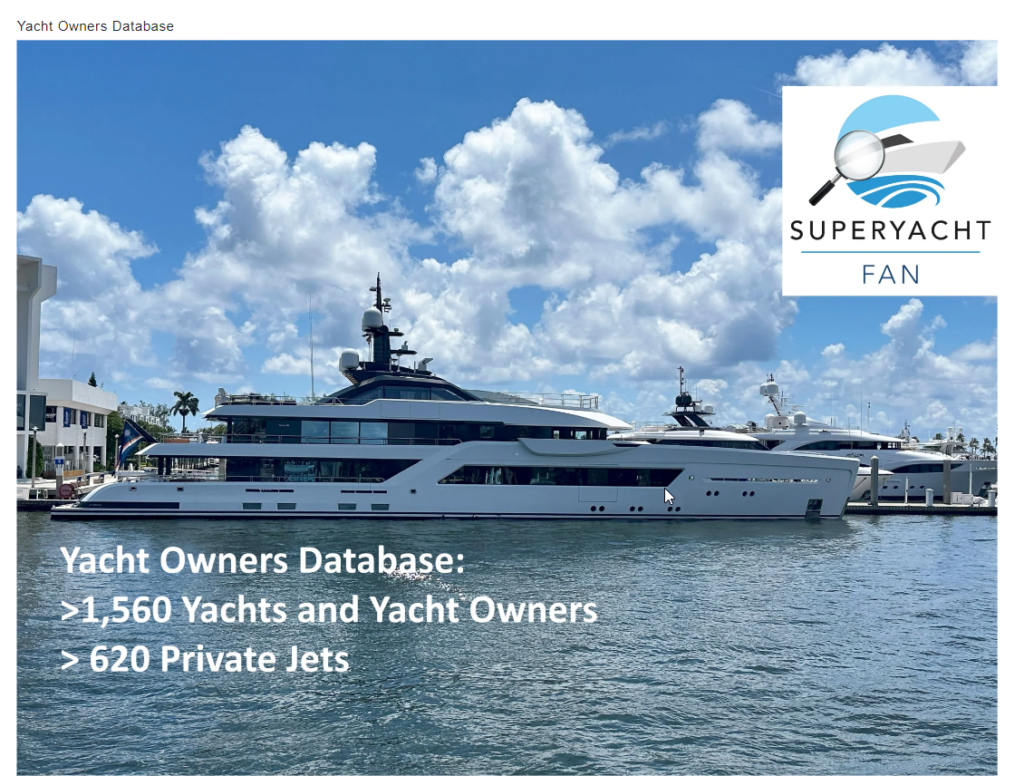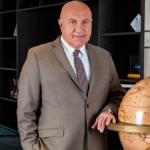Introduction
Robert Yuksel Yildirim is a Turkish businessman and the president and CEO of Yildirim Group, a global conglomerate with investments in shipping, mining, ports, logistics, and energy. Under his leadership, Yildirim Group has expanded aggressively, transforming from a small family business into a major international player. The company’s strategic acquisitions and large-scale infrastructure projects have significantly increased its influence in global trade.
However, Yildirim’s business empire has also faced its share of controversies and challenges. His high-profile bid for the Long Beach Container Terminal in the United States fell through, drawing attention to the political and regulatory hurdles faced by foreign investors in critical infrastructure. In Ecuador, Yildirim Group’s Puerto Bolívar project has encountered delays due to legal disputes and environmental concerns, raising questions about the company’s operational practices.

Furthermore, Yildirim’s mining ventures have been linked to allegations of environmental degradation and labor rights violations, particularly in Albania. These issues have drawn criticism from human rights organizations and environmental activists, damaging the company’s reputation.
Despite these setbacks, Robert Yuksel Yildirim remains a powerful figure in the global business landscape. His leadership of Yildirim Group continues to shape the company’s expansion, but the controversies surrounding his ventures have raised concerns about regulatory compliance, corporate responsibility, and long-term sustainability.
Background and Profile of Robert Yuksel Yildirim
Robert Yuksel Yildirim is a Turkish businessman and the CEO of Yildirim Group, a multinational corporation involved in mining, shipping, and port operations.
Key Profile Details
- Full Name: Robert Yuksel Yildirim
- Position: CEO of Yildirim Group
- Industries: Mining, shipping, ports, logistics, and energy
- Major Controversies:
- Legal challenges in U.S. port investments
- Environmental violations in mining operations
- Operational hurdles in Ecuador’s Puerto Bolívar
- Countries of Operation: Turkey, Ecuador, U.S., Albania, and others
Yildirim Group’s global expansion has been marked by legal disputes, regulatory hurdles, and environmental controversies, drawing the attention of authorities and activists.
Legal Challenges in U.S. Port Investments
Yildirim Group’s expansion into the U.S. port sector has faced significant legal and regulatory challenges.
Long Beach Container Terminal Deal Rejection
In 2019, Yildirim Group attempted to acquire the Long Beach Container Terminal (LBCT) in California. However, its bid was rejected in favor of a competing offer from Macquarie Infrastructure Partners, despite Yildirim offering a higher financial bid.
- Regulatory and Political Barriers: The rejection revealed the complex regulatory environment surrounding U.S. port acquisitions, particularly concerns over foreign ownership of critical infrastructure.
- Public Frustration: Yildirim publicly expressed disappointment over the decision, accusing the U.S. of favoring domestic firms despite his group’s stronger financial offer.
Alternative Port Ventures in the U.S.
Following the LBCT setback, Yildirim Group explored new opportunities in the U.S., including:

- Gulfport, Mississippi: Yildirim expressed interest in developing port facilities in the Gulf Coast region, though no concrete deals have materialized.
- Expansion Delays: Despite its ambitions, Yildirim Group’s U.S. port expansion continues to face regulatory and political obstacles.
Operational Hurdles at Puerto Bolívar in Ecuador
In 2016, Yildirim Group secured a 50-year concession to develop and operate Puerto Bolívar, Ecuador’s largest port, with plans for a $750 million investment to modernize the infrastructure. However, the project has faced significant operational challenges.
Delays and Setbacks
- Land Expropriation Issues: The project was delayed due to land expropriation disputes, creating legal and logistical hurdles.
- Environmental Licensing Delays: The company struggled to obtain environmental permits, further delaying construction.
- Slow Infrastructure Modernization: Despite the group’s commitment to modernize the port, progress has been slower than promised, raising concerns from local authorities and stakeholders.
Financial and Reputational Risks
The Puerto Bolívar project has become a reputational risk for Yildirim Group, with local protests and criticism over the lack of progress.
Environmental and Social Controversies in Mining Operations
Yildirim Group’s mining activities, particularly in Albania and other regions, have been linked to environmental and human rights violations.
Environmental Violations
- Pollution and Deforestation: The group has faced allegations of soil and water pollution due to its mining operations, raising concerns about ecological damage.
- Insufficient Environmental Protections: Critics argue that Yildirim Group has failed to implement adequate environmental safeguards, resulting in long-term ecological harm.
Labor Rights and Safety Concerns
- Occupational Health and Safety Issues: Reports indicate that Yildirim’s mining sites have experienced safety violations, endangering workers.
- Lack of Labor Protections: Local organizations have criticized the group for failing to protect workers’ rights and offering insufficient compensation.

Community Backlash
- Protests and Legal Actions: In Albania, local protests erupted over Yildirim Group’s mining activities, with residents demanding stricter regulations and greater accountability.
- Human Rights Concerns: Activists have accused the company of exploiting local communities and disregarding their welfare.
Strategic Divestment from CMA CGM Stake
In 2010, Yildirim Group acquired a 24% stake in CMA CGM, a major French shipping company, during its financial struggles. The investment was seen as a strategic alliance, but Yildirim later expressed intentions to divest the stake.
Reasons for Divestment
- Shifting Focus: Yildirim aimed to refocus on port and mining operations, moving away from its shipping investments.
- Profitability Concerns: The decision to divest reflected concerns over the long-term profitability of the shipping sector.
Market Speculation and Risk
- Market Uncertainty: The divestment decision created market speculation, raising questions about Yildirim Group’s long-term strategy.
- Reputation Impact: The move was perceived as a lack of confidence in CMA CGM’s future prospects, affecting investor sentiment.
Financial and Reputational Risks
Robert Yuksel Yildirim’s business dealings have exposed Yildirim Group to financial and reputational risks, including:
- Legal and Regulatory Scrutiny: The group’s port investments and mining activities have faced legal challenges and regulatory hurdles.
- Environmental and Human Rights Concerns: Allegations of environmental degradation and labor violations have damaged the group’s public image.
- Delays and Financial Setbacks: The Puerto Bolívar project delays have raised concerns about the group’s project management capabilities.
- Public and Media Backlash: Negative media coverage and public protests have tarnished Yildirim’s reputation, drawing criticism from environmentalists and human rights groups.
Conclusion
Robert Yuksel Yildirim’s leadership of Yildirim Group has driven the company’s remarkable transformation from a modest family business into a global conglomerate with operations spanning ports, mining, shipping, and logistics. His strategic vision and aggressive expansion efforts have enabled the group to gain a significant foothold in multiple international markets. However, this rapid growth has not been without substantial challenges, legal entanglements, and reputational risks.
In Ecuador, Yildirim’s ambitious plans for Puerto Bolívar were intended to be a flagship infrastructure project. However, delays caused by land expropriation disputes, environmental licensing issues, and slow progress in modernization have hampered the project’s success. These setbacks not only strained relationships with local authorities but also raised concerns over the company’s project management efficiency and ability to deliver on large-scale infrastructure commitments.
The challenges Yildirim Group faces underscore the growing importance of ethical business practices, regulatory compliance, and responsible corporate governance in today’s globalized economy. Without significant improvements in these areas, the company risks further legal scrutiny, public backlash, and potential financial instability.







